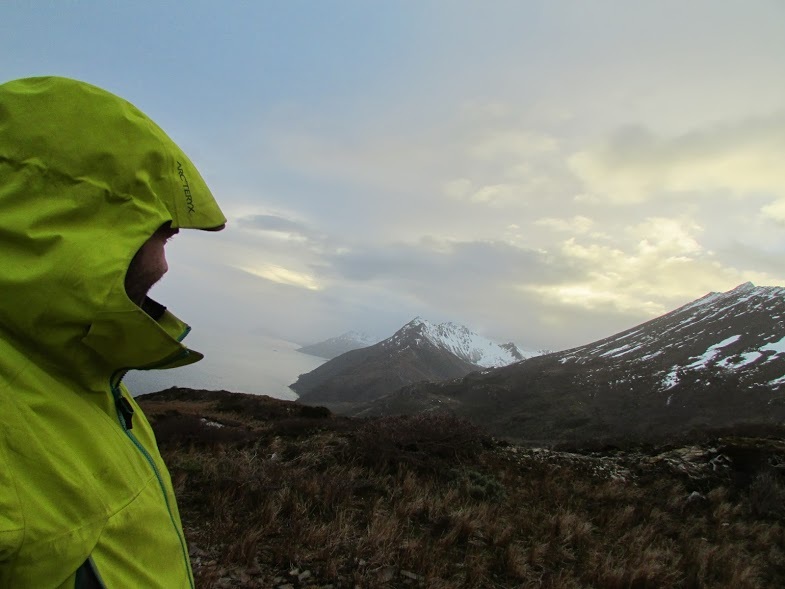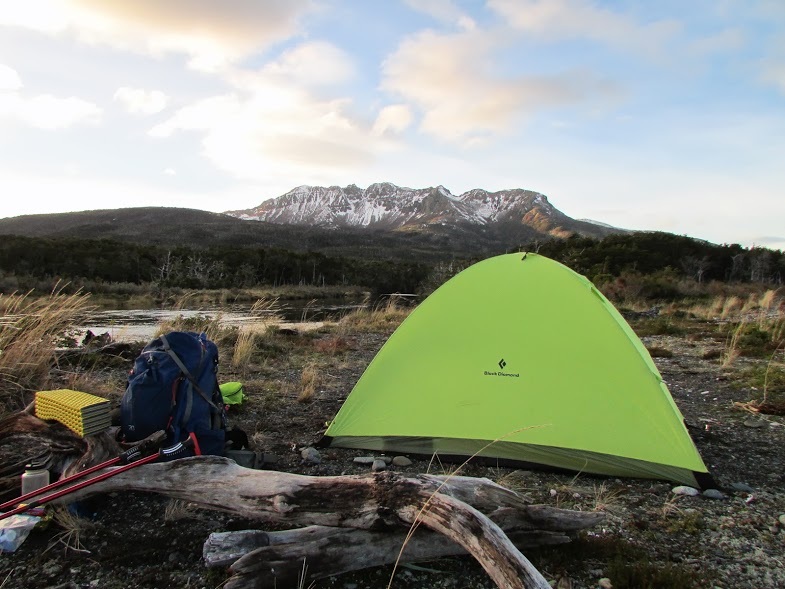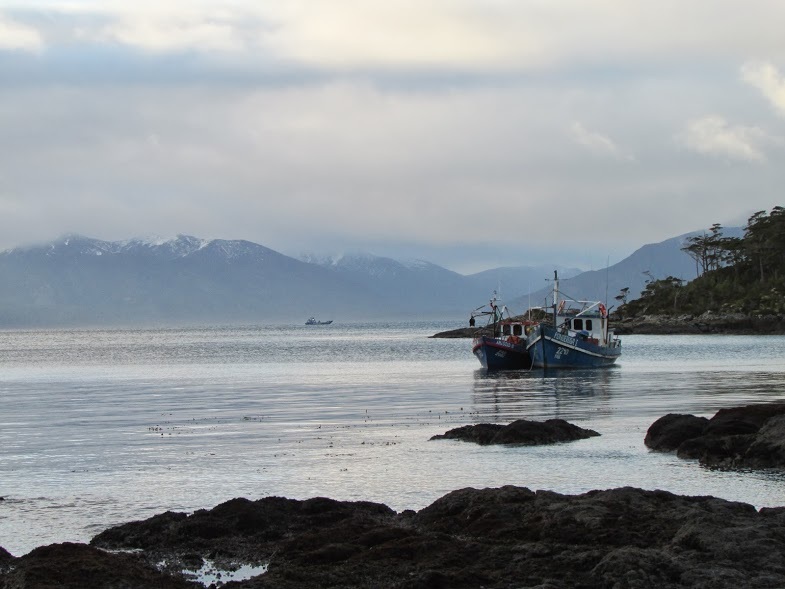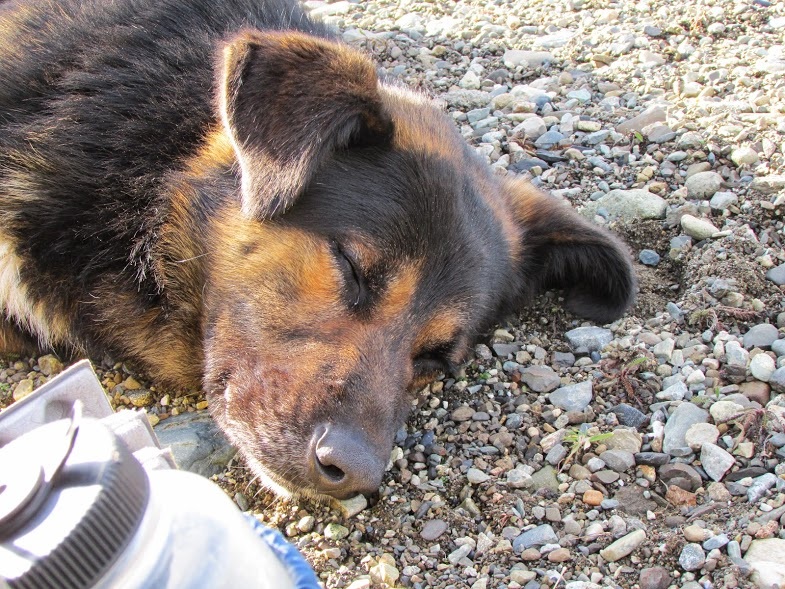The Adventures of Joey & Darwin
Joey Shonka is a biochemist, amateur herpetologist and writer interested in all things scientific and is currently on a two-year expedition walking from the Panama Canal to the Tierra Del Fuego. While scaling peaks and creating an unbroken chain of footsteps across South America, Joey is joining ASC on our repeat glacier photography and high alpine lichen projects.

Joey, surveying the range at the beginning of his journey. Photo by Joey Shonka.
From Joey:
Hello from Puerto Natales, Chile! This new beginning of my journey has been extremely different from my previous start in many ways, as I have been trekking across the Magallanes and Southern Patagonian regions of Chile in the midst of winter!
I am looking forward to contributing to the nonprofit I am volunteering with. Adventurers and Scientists for Conservation has projects around the world and the director was recently named National Geographic´s Emerging Explorer. The concept of the organization is engaging, for they connect adventurers with scientists seeking to collect data in remote or extreme areas of the world. I will be working on a glacier photography project as well as collecting high alpine lichen for a genetic study, and I might become involved in other projects as my trip progresses. I would like to urge all of my adventurous friends to keep them in mind the next time you plan an exciting trip.
I flew to Buenos Aires, Argentina, on July 9th, 2013, where I spent two weeks finishing the edits for my most recent eBook and taking in the portenos culture and vibrant Buenos Aires music scene. After a final goodbye to the city with some good friends, a bottle of red wine in the Plaza de Mayo and a night out in San Telmo, I hopped on a 50-hour bus ride to Rio Gallegos before crossing the border into Chile via a second bus, arriving at last in Punta Arenas with snow falling steadily.

Campsite in Patagonia. Photo by Joey Shonka.
The following day, the mini-bus was only able to reach Fuente Bulnes because of the heavy snows preventing us from getting to the final town on Highway 9 – a highway aptly named the Route of the End of the World. I hiked past the empty village of San Juan to the hotel and lighthouse situated on the point of San Isidrio, and then spent six days covering a mere 36 miles (round trip). I was slowed greatly by blizzards, broad rivers a few degrees above freezing that had to be crossed during low tide, thick coastal forest iced and hung heavy with moisture, and mossy flats that had retained so much water it was as if I was hiking across shin-deep sponges. I made the Cape in three days and paused for a short celebration, but I was only at the beginning of my journey!
After returning to San Isidrio, I followed the coast back to Punta Arenas over the course of a week and then climbed into the mountains west of the city. I explored the Magellan National Forset and the Las Minas Valley before crossing the broad plains of the Patagonian Pampas to reach the shores of the Otway Sound. Here, I found that the resident penguins were not due back for a month, as the weather is too rough for them this time of year. I followed the shores of the Otway to Rio Verde, then cut back across the Pampas to Villa Telhuelche for supplies before hiking north into Puerto Natales. From here, I am headed north to the Torres de Paine National Park, across the border along (hopefully) an ancient indiginous trail to El Calafate, Argentina, and around Lake Argentina to El Chalten. Glaciers, high peaks, and breathtaking views of the beginning of the Andes Mountain Range are in my most immediate future.

A Patagonian lake, flanked by the Andes Mountains. Photo by Joey Shonka.
I seem to have procured a hiking companion of sorts: a dog whom I have fittingly named Darwin, since the HMS Beagle first made record of this area and Charles Darwin climbed the mountain on which Dog Darwin and I first became acquainted. He is very amiable and cheerful, so I assumed that he had a family until some days had passed and he had not left my side. When I spoke with the locals and found out that he was a wild Chilean mountain dog, abandoned and living on what he could kill or scavenge from the beaches, I tried to chase him away for days only to find him slinking along behind me, hiding when I looked back at him. After a time, I realized that he was not going to leave me alone and I accepted his friendship. Soon he had charmed his way into my camp, then into the tent vestibule, and finally into the tent. He commandeers a dog-sized section of sleeping pad when we camp on top of snow. He is a good companion, extremely tough and rather independent, hunting as we walk. My only real complaint is that whenever we pass a ranch, he insists on rounding up all the cows or sheep and running them from one end of the ranch to the other, forcing the ranchers to chase him off with sticks and stones. He especially hates sheep and will grab them by the back of the neck and throw them around if they fail to promptly obey. I believe that this might be inhibiting any potential invitations for lunch or tea, but I still share my scraps with him and buy him a bag of dog food when we visit towns.

A sleepy hiking partner. Photo by Joey Shonka.
Even with Darwin´s antics, I am still amazed at the generosity and kind, open nature of these Patagonian peoples. The areas I am crossing are extremely remote and often, I am invited in from the cold for a shared yerba mate or coffee around a wood-burning stove, some homemade bread with real butter, or thick, spicy, mutton stew. Even Darwin is often given something, usually scraps from the butcher´s cold room behind a ranch. I have been listening and watching and taking in the culture like some vital sustenance. I’ve become aquainted with the custom of drinking a shared mate; I’ve grown used to the subtle heat of the aji chile; I’ve sampled delicious piccarones (squash-and-flour doughnuts fried in oil and topped in canela syrup – called chancaca here in Chile) and enjoyed the customs, music, and lifestyle of the people who work these sprawling lands at the end of the world.




